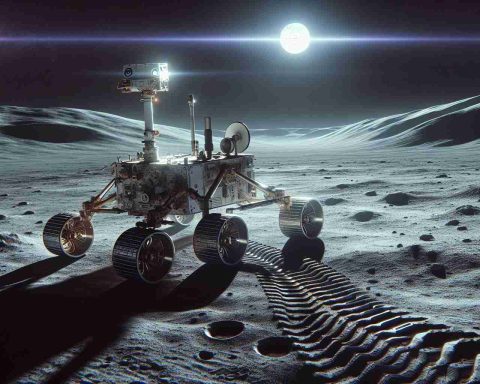- The FAA has temporarily suspended SpaceX’s Starship launches following a mid-flight explosion.
- Debris from the explosion affected air traffic over the Turks and Caicos Islands.
- Initial investigations suggest a catastrophic leak may have caused the incident.
- Elon Musk aims to implement improved safety measures before future launches.
- Musk’s potential cabinet role raises concerns about conflicts of interest related to SpaceX and FAA oversight.
- Ambitious plans for unmanned Mars missions are targetted for late 2026, though significant challenges remain.
- The FAA is also reviewing the operations of Blue Origin amidst broader scrutiny of private space companies.
The cosmos just got a little more tumultuous! The Federal Aviation Administration (FAA) has hit the pause button on SpaceX’s Starship launches after a dramatic explosion just minutes into its flight. This fiery setback has sent debris raining down on the Turks and Caicos Islands, prompting urgent reroutes for several aircraft to dodge potential collisions.
As investigators dive into the rubble, they’re piecing together what went wrong. Early findings hint at a catastrophic fuel or oxygen leak that caused the blast. SpaceX’s founder, Elon Musk, isn’t backing down though—he’s already laid out plans to enhance safety measures and keep the fire at bay, with hopes of launching again soon.
Adding another layer of intrigue, the investigation unfolds as Musk gears up for a potential cabinet-level role in the upcoming Trump administration. With his influence over federal agencies like the FAA on the horizon, critics are raising eyebrows over potential conflicts of interest—especially since SpaceX holds lucrative contracts with NASA.
While the quest to conquer Mars ignites excitement, timelines remain cautiously optimistic. Musk has ambitious plans for unmanned missions to Mars as soon as late 2026, but the reality of getting Starship into orbit is still a monumental hurdle.
As the FAA scrutinizes not just SpaceX but also the recent woes of Blue Origin, the future of space exploration hangs in the balance. In this ever-evolving landscape, one thing is clear: the stars may soon be within reach, but the road ahead is fraught with challenges and intrigue. Stay tuned!
NASA’s Space Race: The Future of SpaceX and Beyond!
The Recent Incident with SpaceX’s Starship
The recent explosion of SpaceX’s Starship during its test flight has raised substantial concerns about the safety and reliability of space travel. The incident, which resulted in debris landing in the Turks and Caicos Islands, has prompted the FAA to halt further launches. Investigators are focused on determining the cause, with initial reports pointing towards a critical fuel or oxygen leak.
Safety Improvements and Future Launches
In response to the explosion, Elon Musk has outlined plans to improve safety protocols to prevent similar disasters in the future. These protocols will focus on ensuring that the Starship’s fueling systems are thoroughly tested and monitored prior to launches. Despite the setback, Musk remains optimistic about the timeline for future missions.
Stakeholder Reactions and Investigations
While the FAA investigates the incident, both government agencies and the public are scrutinizing SpaceX’s operations more closely. The agency’s focus has shifted not only to SpaceX but also to other competitors in the space industry, such as Blue Origin, which has its own safety concerns.
The Role of Government in Space Exploration
Elon Musk’s potential involvement in a future Trump administration raises questions about the intersection of private enterprise and government oversight in the space sector. Critics are voicing concerns over possible conflicts of interest, particularly since SpaceX benefits from significant contracts with NASA.
Key Questions
1. What safety measures is SpaceX implementing following the explosion?
SpaceX is taking significant steps to enhance safety protocols, focusing on rigorous testing of all systems, particularly those involved in fueling and launching, to mitigate risks associated with future missions.
2. How will the FAA’s investigation impact SpaceX’s operations?
The FAA’s investigation may lead to stricter regulations and oversight for SpaceX’s future launches, prolonging the timeline for their next flight and possibly affecting their operational capacity.
3. What are the implications of Musk’s potential government role on SpaceX?
If Elon Musk assumes a government position, this could lead to conflicts of interest in regulatory processes as it could influence FAA’s relationship with SpaceX amid ongoing investigations and regulatory scrutiny.
Additional Insights
– Market Forecasts: Analysts predict that the delay in Starship launches could affect SpaceX’s competitive position in the burgeoning space tourism market, especially amidst rising competition.
– Innovations: SpaceX continues to innovate with its reusable rocket technology, which is critical for reducing the cost of space access, a necessity for future Mars missions.
– Sustainability: As discussions about the environmental impact of rocket launches rise, SpaceX is exploring greener technology to align with sustainability goals.
For more information, visit SpaceX.
Stay tuned as we continue to follow the evolving narrative of space exploration and the role of key players such as SpaceX in this exciting new frontier!















